Editor’s Note: This excerpt is adapted from 13 Novels Conservatives Will Love (but Probably Haven't Read), by Christopher J. Scalia.
More years ago than I care to count, when I was studying English literature in graduate school, I found a used copy of the American philosopher Russell Kirk’s The Portable Conservative Reader at the university bookstore. I was familiar with Kirk but had never seen this collection, so even though I had a million other books to read for my classes and not much disposable income, I couldn’t resist buying it. While I waited in line, a classmate approached me to say hello, saw the title, and asked, “A conservative reader? What’s in that?” You didn’t have to be a grad student to understand the subtext: he was skeptical that there was enough conservative thought to fill a 700-page anthology. To answer his question, though: The anthology included selections from Edmund Burke, The Federalist Papers, William F. Buckley Jr., and Michael Oakeshott—not to mention William Wordsworth, Nathaniel Hawthorne, Joseph Conrad, Rudyard Kipling, and other literary giants.
That encounter has stayed with me not only because it’s the perfect illustration of how many people on the left think “conservative thought” is an oxymoron, but also because the book helped shape how I understand that intellectual tradition. As a cradle conservative, it was easy for me to take some conservative principles for granted. A resource that gathered some of the most profound expressions of these ideas was invaluable in helping me better understand certain foundational ideas and precepts—and to recognize that they were part of a long and impressive conversation between great writers over the centuries, including in poems and stories.
Unfortunately, the most basic obstacle to recognizing our novelistic patrimony is that few of us are actually reading any fiction. In 2002, the National Endowment for the Arts (NEA) found that 46.7 percent of American adults read literature, a 10 percent drop from the early 1980s. That decline spanned across education levels, race, age, and gender, but was especially dramatic among 18- to 24-year-olds: in the early 1980s, that age group had the second-highest percentage of readers (59.8 percent). By the early 2000s, only the 75 and older demographic had a lower percentage (42.8 percent).
A 2009 NEA report—with the hopeful title of “Reading on the Rise: A New Chapter on American Literacy”—gave cause for optimism when it found a growth in the literature-reading public for the first time since the early 1980s, and even a 4 percent bump in the reading of fiction in particular since 2002. But that study’s upward trend has steadily evaporated. In 2018, the NEA reported that fewer American adults were reading fiction than ever in the 21st century—only 41.8 percent, nearly a 3.4 percent drop in five years. That decline intensified in the Endowment’s 2023 report, which found just 37.6 percent of adults had read novels and short stories the preceding year, “the lowest share on record with the survey” and a 4.2 percent decrease from the previous, already dire, findings.
Other surveys are no more heartening. In 2021, the Pew Research Center found that “roughly a quarter of American adults (23 percent) say they haven’t read a book in whole or in part in the past year.” It is safe to assume that the percentage of adults whose shadow darkened the pages of a novel specifically is even smaller. Similarly, Gallup found that in 2021, Americans read many fewer books than just a few years before: the average American reported reading 15.6 books in 2016—and 18.5 in 1999!—but only 12.6 in 2021. In 2016, 35 percent of Americans reported reading at least 11 books over the year; that number dipped to 27 percent in 2021. The only positive way to spin these numbers is to assume that poll respondents have become more honest or modest. A remarkable element of the Gallup poll is its loose definition of “reading,” which encompasses not only books and e-books, but audiobooks as well, as if listening and reading are the same acts. Even with that expanded definition, engagement with books is dropping.
Any free marketeer will have an easy time identifying the reason for this decline: There’s a lot more competition for our time. Dana Gioia, a poet and critic who chaired the NEA between 2003 and 2009, pointed this out in the Endowment’s 2004 report, observing that “reading a book requires a degree of active attention and engagement . ... [It] is a progressive skill that depends on years of education and practice. By contrast, most electronic media such as television, recordings, and radio make fewer demands on their audiences, and indeed often require no more than passive participation.” Keep in mind Gioia wrote that before the advent of YouTube, Google, Facebook, Instagram, X, TikTok, Netflix, and other streaming services, remarkable developments in video gaming, and the countless other services and technologies that now consume our free time (and, if the shocking rumors I’ve heard are true, even some people’s work time). These are all easier than reading even the breeziest genres of fiction, pot-boilers, and romance novels.
An anecdote in a recent New Yorker story captures this trend. Discussing the decline in the number of students studying English, James Shapiro, a Shakespeare scholar at Columbia University, explained that he once believed the trend could be reversed. He doesn’t anymore:
Technology in the last twenty years has changed all of us. How has it changed me? I probably read five novels a month until the two-thousands. If I read one a month now, it’s a lot. That’s not because I’ve lost interest in fiction. It’s because I’m reading a hundred Web sites. I’m listening to podcasts.
It’s not just millennials and younger people who have never known life without the internet and social media—their boomer professors are trading in novels for the internet, too. And the more time we spend online instead of between pages, the harder it is to get back into the habit when—or if—we try.
In The Decline of the Novel, critic Joseph Bottum observes that the novel is the cultural form through which Western Europeans explored the problems of the modern self most fully. As the title of his 2019 book implies, however, the art form no longer enjoys a privileged place. Setting aside Bottum’s reasons for this decline (which are provocative but beyond the scope of my project), it’s hard to argue with his premise. As he puts it:
[S]erious novels have largely disappeared from public intellectual life. You can read them if you want, but you don’t have to read them to participate in the serious public discourse of America. Over lunch one day, the wonderful magazine-essayist Andrew Ferguson gave me what he called the Cocktail Party Test for new books: Would you be embarrassed to show up at a get-together of writers and public-intellectual types without having read it? And the last novel he could remember for which that seemed true was Tom Wolfe’s Bonfire of the Vanities in 1987. ... A fundamental art of Western civilization for hundreds of years just doesn’t seem to count for much anymore.
I suspect that some readers might object and suggest one or two more recent titles. One that comes to my mind is Jonathan Franzen’s 2010 work Freedom, but I may be overestimating its cultural relevance because Leslie Knope mentioned it on an episode of Parks and Recreation. Still, Bottum’s overall point is unassailable: the novel simply does not have the cultural significance it did a generation ago.
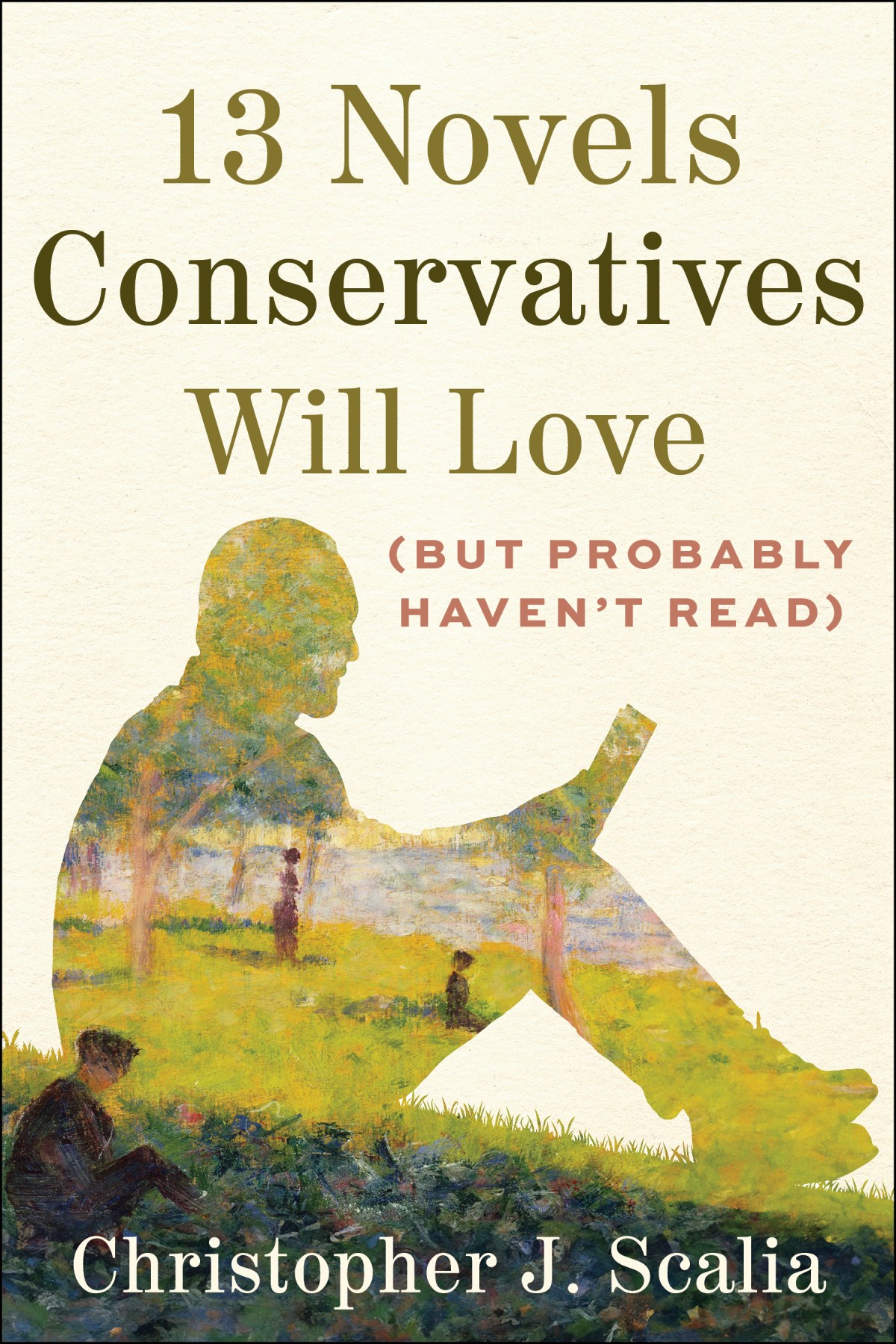
A skeptic may be asking, “So what? If I want to learn about conservatism, why don’t I just re-read my favorite biography of Winston Churchill, a memoir by a prominent conservative politician, or the latest edition of a thoughtful periodical? What can I get out of fiction that I can’t get out of a book about things that really happened or are really happening?”
Simple: Great fiction is a source of beauty, and beauty is good. Great fiction is also a source of truth, but (per Emily Dickinson’s advice) truth told slant. Perhaps this is why some of America’s most influential modern conservative thinkers have recognized the power of fiction enough to try their hand at it. William F. Buckley Jr., founder of National Review, wrote many novels. Russell Kirk wrote three novels and nearly two dozen short stories. Irving Kristol dabbled in fiction on his way to godfathering neoconservatism. Even Leo Strauss quoted Sherlock Holmes.
As Horace declared in Ars Poetica, great literature instructs and delights. And much of the best literature shows us how to live. Kirk argued that “the end of great books is ethical—to teach us what it means to be genuinely human.” Or as John Agresto has recently argued about the liberal arts more generally, “While our books might not make us ‘more humane,’ they can surely show us and lead us to think about all the aspects, high and low, of our humanity.” Kirk takes that premise a step further to suggest that “every major form of literary art has taken for its deeper themes the norms of human nature. ... [Authors] assumed that the writer is under a moral obligation to normality—that is, explicitly or implicitly, to certain enduring standards of private and public conduct.” Kirk’s reference to “normality” may raise some eyebrows, but his general point may be less controversial: Great literature can show us how to lead a better life.
Given this broad purpose, it’s not difficult to see potential political applications, or to understand what someone interested in being a better citizen could glean from fiction. The novelist Ralph Ellison offers one connection between politics and narrative art, as both “thrust toward a human ideal,” and helps us understand how we might achieve that ideal:
[If] the ideal of achieving a true political equality eludes us in reality—as it continues to do—there is still available that fictional vision of an ideal democracy in which the actual combines with the ideal and gives us representations of a state of things in which the highly placed and the lowly, the black and the white, the northerner and the southerner, the native-born and the immigrant are combined to tell us of transcendent truths and possibilities such as those discovered when Mark Twain set Huck and Jim afloat on the raft.
Fiction can show us, as the title of an Anthony Trollope novel puts it, The Way We Live Now; it can also gesture toward things as they should be and to what democratic citizens can aspire. In their introduction to What So Proudly We Hail: The American Soul in Story, Speech, and Song, Leon Kass, Amy Kass, and Diana Schaub explain the value of story-telling for national character:
[To] hear—or read—and discuss the best stories told by the best storytellers is more than a way of passing time. It is a way of deepening time, by taking us to the profoundly humanizing truths contained in the ordinary surfaces of our experience. With the help of a great storyteller, we can see in the commonplace the things that really matter. Yes, stories are entertaining, but at their best they inform and reform us by dramatizing belief and rendering feeling thoughtful.
Inform, reform, humanize—these are powerful capabilities. And part of that humanizing experience, part of how we’re reformed, and what we’re informed of, relates to how we see other people.
At the risk of alienating readers by quoting a conservative bête noire approvingly, I think former President Barack Obama’s testimonial for fiction’s ability to shape democratic engagement is very powerful. In an interview with the novelist Marilynne Robinson for The New York Review of Books, Obama attributed an important component of his political education to the fiction he read: “The most important set of understandings that I bring to that position of citizen, the most important stuff I’ve learned I think I’ve learned from novels.” What exactly was that most important component? This brings us to a facet of fiction that, while possibly overstated, is important nonetheless. Here’s how President Obama described it:
It has to do with empathy. It has to do with being comfortable with the notion that the world is complicated and full of grays, but there’s still truth there to be found, and that you have to strive for that and work for that. And the notion that it’s possible to connect with some[one] else even though they’re very different from you.
This belief in the empathetic powers of fiction has been reinforced by a number of scientific studies. The Harvard Business Review reports that “reading literary fiction is an effective way to enhance the brain’s ability to keep an open mind while processing information, a necessary skill for effective decision-making.” Keith Oatley, a professor emeritus of cognitive psychology at the University of Toronto, claims that “reading novels enables us to become better at actually understanding other people and what they’re up to.” These claims strike me as entirely plausible, and I suspect it’s no coincidence that the novel developed in Britain at a time when thinkers like David Hume and Adam Smith were immersed in theories of sympathy. Indeed, one of the earliest sub-genres of fiction in 18th-century Britain was the novel of sensibility, in which characters demonstrated their virtue and goodness by expressing sympathy for those around them, as well as being sensitive about their own troubles.
Empathetic abilities are obviously important to citizens in a pluralistic democracy like our own, which relies on compromise and no small amount of tolerance for difference. Still, it’s also true that many great novels are more interested in ridiculing than empathizing. In 1960, the great American short-story writer Flannery O’Connor complained, “It’s considered an absolute necessity these days for writers to have compassion. ... Usually I think what is meant by it is that the writer excuses all human weakness because human weakness is human. The kind of hazy compassion demanded of the writer now makes it difficult for him to be anti-anything.” There’s a lot to be said for the literature of antipathy, writing—especially satirical work—that condemns characters who commit evil, and ridicules the foolish, even as it recognizes the complexities and ambiguities of our world.
One way fiction immerses us in the minds of others is by immersing us in language. Television and cinema are rich and rewarding media; yet while they do many things a novel could never hope to do, there are many techniques closed off to them and many ways they cannot appeal to us. Appealing directly to the eye, they rely much less on language. Fiction conjures images through words. That’s an obvious statement, but the difference is profound. For all of our technological advances, language is still our primary form of communication. Like all great literature, great fiction reminds us of the power of language, renews our wonder in the possibilities of that astonishing mode of human expression. To read a great sentence written by any of the novelists in this book is to be awestruck by a combination of music and precision, imagination and wisdom.
Finally, conservatives should embrace the novel because it is one of the great achievements of Western culture. It is the form through which many of the most talented creative minds of the past three centuries have expressed their ideas, explored their times and places, and both reflected and formed the minds and characters of their audiences. To understand the heights our language and culture are capable of, we must be familiar with the heritage of the novel.
Copyright 2025 Christopher J. Scalia. Excerpted by permission of Skyhorse Publishing Inc.
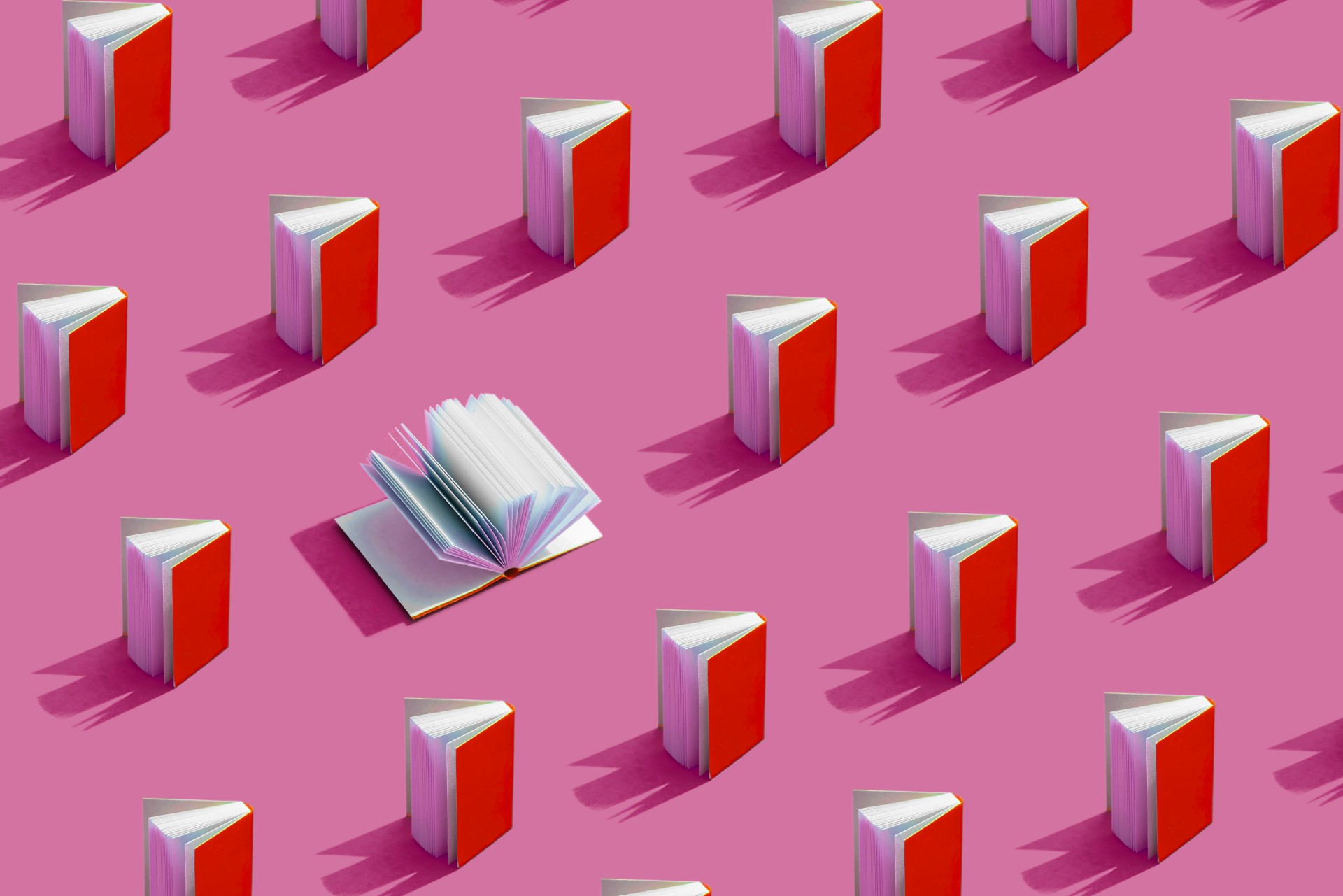
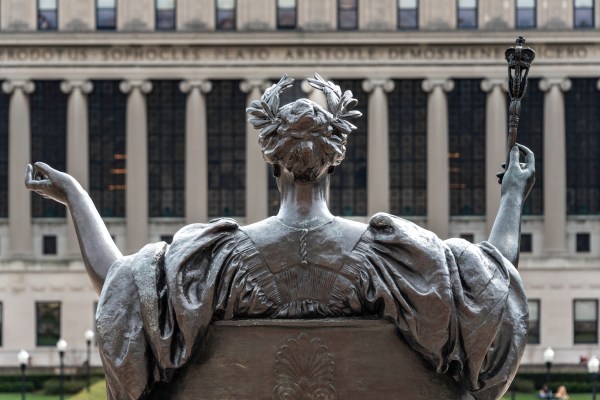

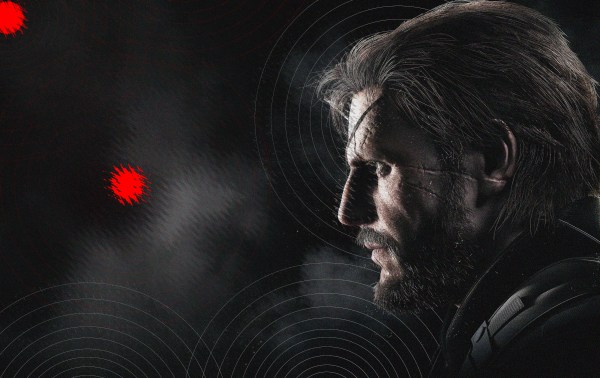

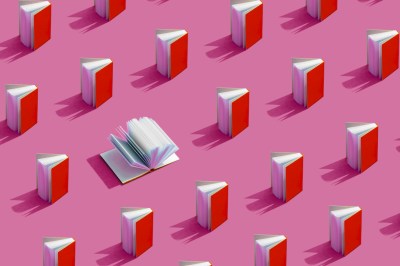
Please note that we at The Dispatch hold ourselves, our work, and our commenters to a higher standard than other places on the internet. We welcome comments that foster genuine debate or discussion—including comments critical of us or our work—but responses that include ad hominem attacks on fellow Dispatch members or are intended to stoke fear and anger may be moderated.
With your membership, you only have the ability to comment on The Morning Dispatch articles. Consider upgrading to join the conversation everywhere.